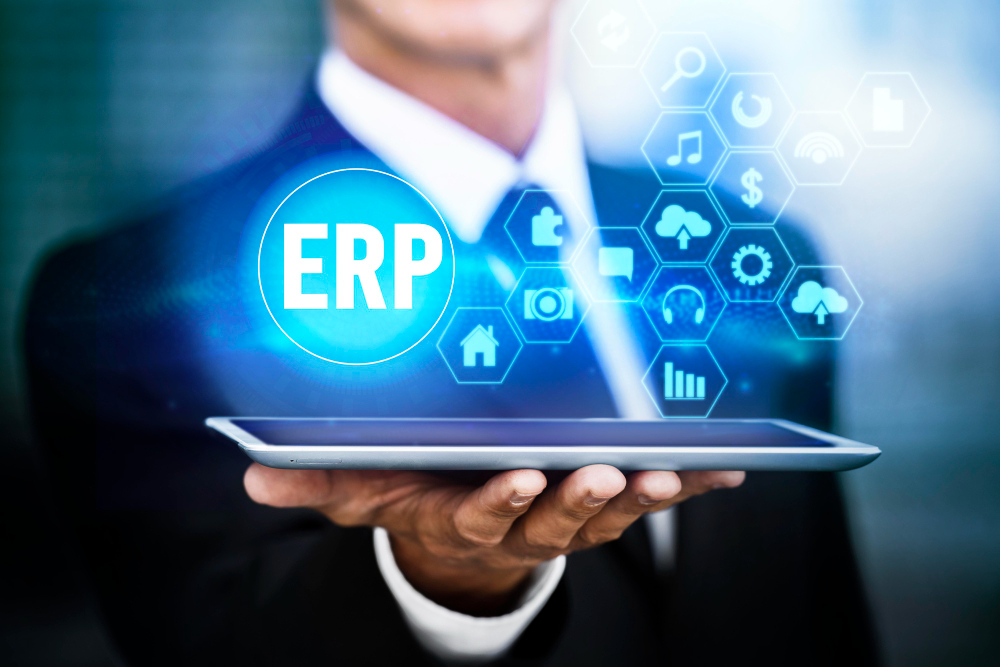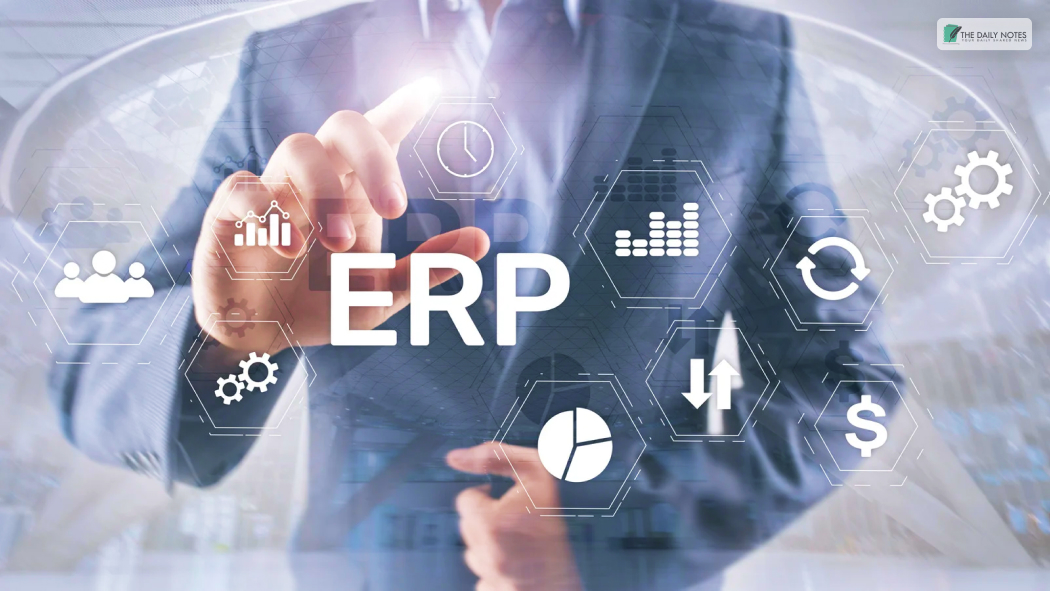Enterprise resource planning (ERP) systems deliver integrated core business-process management. This means age-old business processes such as accounting/financials, sales, inventory management, purchasing (i.e., supply ordering), etc. The ERP system is based on a centralized database that stores data from every transaction. Irrespective of which department generated the transaction.
This centralization is key because it allows previously disparate departments, or business siloes, to be integrated. In addition, the basic communication between them is largely automated.
So, for example, confirmation of a sales order will not require manual entry into the system to trigger an alert. The finance team will also not rely on separate communication to proceed with shipping once the payment is complete.
Integrating ERP systems can seem tricky at first. There are many considerations to review to prevent all your processes from failing instead of optimizing them. That is why you should always hire a professional in the field.
ERP solutions are designed to combine all the various pieces of your business into one cohesive package. Additionally, thanks to the lower cost of entry and ease offered by cloud computing, ERP systems can offer huge benefits for small-to-medium-sized enterprises. Not just the large organizations that have long relied on ERP systems.
The benefits small to midsize businesses (SMBs) can realize will vary depending on their situation. For those undergoing rapid growth, the right ERP software can support their expansion.
Matching ERP system to system to the needs of manufacturing shops will be helpful for them. For instance, optimize their production, better control costs, and better respond to custom product demands.
Retailers, while still having the same basic needs (human resources, accounting, inventory management, etc. Supported like every other business category, might choose an ERP solution with specific modules to support their goals, such as e-commerce integration.
Planning is Everything
The overall objectives of an ERP system are to maximize efficiency in business operations and reduce the chance of financial errors. Additionally, it makes data readily available for analysis, which can, in turn, support better decision-making. But before you purchase and implement an ERP solution, you’ll need to ask yourself some questions.
What Functional Areas Will Your ERP system need to cover?
For an enterprise focused on transportation, an ERP system would likely need to include a specific transportation management system function.
For instance, planning and optimizing terrestrial transport rounds, service quality control measurement, shipment batching of orders, and electronic data interchange. In addition to standard ERP functions such as accounting, sales, and personnel management.
How will Users (Your Employees) Interact with the System?
It’s nearly always a mistake to have one person be the decision-maker when purchasing an ERP solution. Especially without input from employees within each user group using the new system. For example, what a human resources staff member will need the ERP solution to do will be different. Then what the people in inventory or those in sales/customer service will need?
It’s important to convene a group of staff members representing each group of stakeholders to get direct input. Especially on what functions and features they think need to be included.
It is not feasible to be in everyone’s good books. However, you can be in the trenches by getting input from everyone. Users who will be relying on an ERP in their specific departments daily will go a long way. Towards eliminating some blind spots where management realizes the new system does not fulfill some important requirements.
How are the Various Business Functions the ERP Solution will Perform being Handled Currently?

Is there one or more legacy systems already in place, and will these legacy systems need to be decommissioned? Or will they need training to integrate with the new system and continue using it?
A Related Question is, where do the Gaps Currently Exist?
Which systems in place are currently functioning well, and which have areas where they fall short? To realize a maximum return on investment (ROI), looking for an ERP solution that will eliminate the biggest gaps you and your selected team of stakeholders have identified makes sense.
How will a New ERP System Align with Your Business Goals?
In other words, beyond fulfilling the immediate requirements you need to operate the business, are there any longer-term plans? Or objectives in place that any new software will need to accommodate?
Once implemented, the average ERP solution should have a functional lifespan of at least 3 – 5 years. That is before a major upgrade or migration becomes necessary.
For example, you know that your company is planning to open an overseas subsidiary. It is going to start deploying field technicians or is in the process of acquiring its warehouse, etc. You’ll want to be sure to plan for these “forthcoming needs.” When defining the requirements any ERP under consideration will need support.
Will You be Using an On-Premises Solution Or a Cloud-based One?
Cloud-based solutions can remove costly infrastructure off-site, reducing overall setup and maintenance costs. Your business may prefer to have more control over the system itself.
However, requiring an on-premises solution. For example, a business that centers on investment may prefer the added security of local storage and processing.
Have a Plan for Implementation and Anticipate Problems
As your ERP software selection process requires a plan, ERP system implementation also requires one. This is especially true given the transfer of data that needs to occur (where data quality is a central concern), project milestones around configuration and testing must be hit, and the staff must be trained.
Having clear goals and objectives from the outset will make rolling out a new ERP system much easier.
It’s important to have measurable metrics to judge performance. Be sure to include data in your initial plan, as this will help you to anticipate potential problems.
You’ll need to have the right support staff in place to work with your implementation provider to make sure that any technical requirements are met (e.g., do any servers and workstations need to be upgraded to accommodate the new system, is web connectivity sufficiently robust and reliable, will the data itself be housed onsite or in the cloud, etc.?).
The support staff will be an important part of your transition to a new ERP system. Not only will your employees need training on the new system, but the system will also need phased testing during the rollout.
This is particularly pertinent for anything technology-based, so having good IT staff will be essential. Having these personnel already in place will drastically reduce the chance of major problems during the early stages of moving to the new system.
If you’re using a service provider to implement your new ERP system, which is what most software vendors will require, know exactly what the implementation provider’s terms are. Often, these terms and conditions will presume to outsource at least some of the learning and support needed for a new ERP system.
In addition, an internal staff member should act as the project coordinator for the implementation. Where they can oversee the work and progress of the implementation specialist. While the implementation provider will have set milestones and timelines for the project. Thus, it is wise to have one of your staff follow the progress throughout.
Not only to ensure you meet the milestones but also to identify any issues or bottlenecks promptly. Consequently, they can be addressed before they can derail the implementation.
Get Motivated Staff Involved
Before starting implementation, it is necessary that you assemble a team of personnel from every department. These new individuals will be necessary to run the process. They will ensure clear communication from start to finish, thoroughly keeping things smooth.
Personnel involved in implementing the new system must have time to dedicate to the project. Not allocating enough resources to the planning and implementation of the new ERP system will hamstring progress before it has even started.
Stay Informed of Changes and Keep All Staff Updated
A smooth transition into a new ERP system requires a plan for familiarizing employees with the new system. By easing confusion and helping people transition to using the new ERP solution, you’ll prevent resistance to change.
Education will play a huge role here, with a successful education program addressing both instructions on the new system and highlighting its benefits to your employees. If you can train and promote the new system simultaneously, you’ve already won the battle.
You can use group training with instructors, create videos, or even set up small online support communities to help your employees acclimate to your new platform.
Announcing clear milestones in implementing your new system will increase morale and ease the transition into the new system. Once people start to see the real improvements the system will bring about, they’ll be eager to use the new tools.
Employees already experienced with technology will likely be willing to help your company adopt the new ERP system. Ask them for feedback on getting users familiar with the new system, and listen to any advice they can give!
Check TEC’s article on managing change when implementing new software for further reading.
Ask for Help When You Need It
This is where it can be extremely beneficial to work with a vendor that offers Full-service ERP solutions for SMBs, as you’ll be able to contact their knowledgeable specialists should anything be causing you problems. If you were creating your system from scratch without help, it would be difficult to know who to turn to if things didn’t go as planned.
A knowledgeable support staff with experience transitioning to a new ERP platform can make a huge difference in successful ERP implementations.
Turning to outside firms for help provides many advantages over going it alone, and you should strongly consider doing so to reap the benefits of a new ERP system as soon as possible.
Conclusion
Businesses thrive on information, communication, and efficiency, three things that benefit greatly from the use of technology to find success. While it can seem like a monumental task to implement a new ERP system, you can use the resources and the people around you to help with the transition.
Having experienced support in the right places can make all the difference.
More Resources:




























